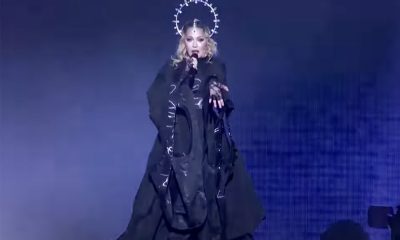Music & Concerts
New Madonna remix collection solid but not exhaustive
Marred only by a few ’80s omissions, set is blazing history of club music’s evolution
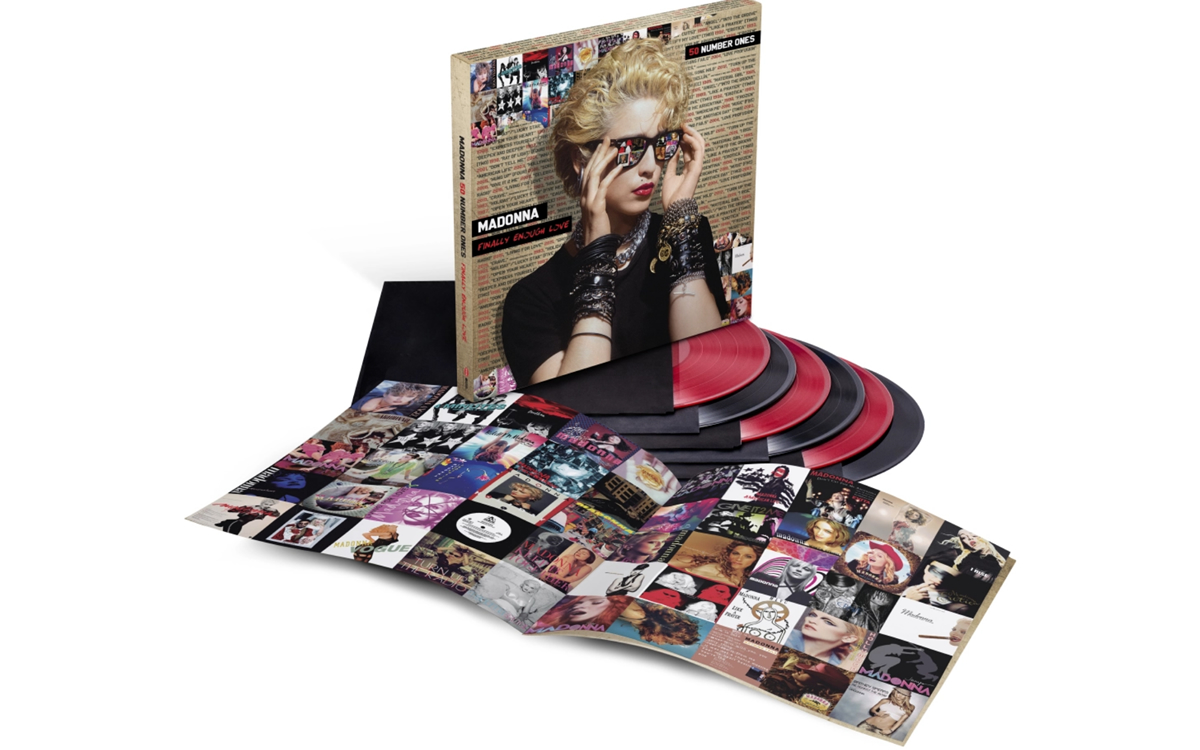
Madonna, though she has as many hit compilations as one would expect from an artist of her vintage and stature, has always seemed wary of looking back or indulging much degree of nostalgia about her career.
As polarizing as her later albums sometimes are, one could never accuse her of cashing in, as so many veteran acts do, on tour after tour of the same old set list designed to hit all the obvious musical marks, please the most tepid of fans and make easy millions. But she has almost swung too far the other way. Hits sometimes have felt grudgingly performed at her live shows of the last, oh, 20 years or so, and have, at times, been so radically re-crafted — an approach that can be thrilling when it works, no doubt — the spirit of the original track has been sometimes painfully undercut.
All that to say, it’s fun to see Our Lady of the Remix — for whom in popdom is more deserving of that title? — look back so sumptuously with the Aug. 19 release of “Finally Enough Love: 50 Number Ones,” (☆☆☆ out of four) a new 50-track remix collection available digitally, in a three-disc CD set and a sold-out six-LP vinyl edition, as well as “Finally Enough Love,” a 16-track version on single CD, double vinyl and digitally. The releases are the first since it was announced last summer that Madonna was returning to her original label, Warner Records, in a new deal that would include a series of deluxe catalogue reissues. It celebrates her record-shattering span of 50 No. 1 hits on the Billboard U.S. Dance Songs Club chart, starting with “Holiday”/“Lucky Star” (only “Holiday” is here, though) in 1983 and culminating with “I Don’t Search I Find” in early 2020 from her 2019 album “Madame X.” The collection’s title is taken from that track. For context, those trailing her record of 50 No. 1 hits on that chart are Rihanna (33), Beyonce (22), Janet (20) and Katy Perry (19); Madonna’s record here is the most number ones by an artist/band on any Billboard chart ever.
It’s also especially nice to see since remixes have been so essential to Madonna’s career. The only time she ever released anything remotely akin to this before was either very early (1987’s “You Can Dance” remix album) or oddly random (the 2003 EP “Remixed & Revisited”).
This collection is not, as one might guess, a collection of her all-time greatest remixes or even necessarily the versions of the songs that charted. Gen. Xers who gobbled up her maxi singles all through the ’90s and beyond will find their stash, if retained, are still the only sources (not counting unofficial YouTube postings) for classics such as the “Shep’s ‘Spressin’ Himself Re-remix” of “Express Yourself” from the “Justify My Love” maxi (also home to the deliciously weird “The Beast Within Mix”), the “Waiting” remix (a non-single) from the “Rain” maxi or any of the varied delights (e.g. “Madonna Gets Hardcore”) on the import “Bye Bye Baby” maxi.
Even if you’re a completist of the highest order — and there certainly are folks like that in the Madonnaverse — your experience won’t be sullied or buoyed much by the mixes included or excluded.
Tons of other remixes here are just slight variations of mixes we’ve heard before. I haven’t been following these releases like a hawk in recent years, but if you collected these in any capacity over the years, there will likely be a fresh balance of familiar and unfamiliar motifs and passages sprinkled throughout.
Most of the remixes retain the bulk of the lyrics from the album versions and are tight edits (no 10-minute percussion solos). The earlier cuts on disc one are the least radical, a non-surprise considering remixing trends of the ’80s. And while many of these mixes are heretofore unreleased, they are nearly all vintage or, where tweaked, retain the spirit of their album counterparts. There’s no radical thumpa-thumpa version of “Everybody” or “Material Girl,” for example; disc three, containing the newest material, is by far the most pounding/rave-influenced.
Standouts for me were the loungy, uptempo-yet-chill vibe of the “Underground Club Mix” of “Erotica” (straight from the vintage “Erotica” maxi), the “PSB Maxi Mix Edit” of “Sorry,” (until now, a promo-only mix), the “Eddie Amador Club 5 Edit” of “Give it 2 Me,” (vintage, but never commercially available until now) and “Avicii’s UMF Mix” of “Girl Gone Wild,” which features a spidery instrumental motif that could almost work as a fugal theme.
As a whole, however, there are a few impediments to the way this all goes down, especially if you listen straight through. A few tracks — e.g. the “Sasha Ultra Violet Mix Edit” of “Ray of Light” with its sputtery beat pattern or the loungy, uber-chill vibe of the “Bob Sinclar Space Funk Edit” of “4 Minutes” (this edit of which was only ever previously released on a 12” vinyl picture disc) — give needed contrast to the mostly unrelenting 4/4 beat patterns. But after a while, especially on discs two and three, it all starts sounding like little more than “Hooked on Madonna,” of the famous “Hooked on Classics” series from the ’80s, which set classical themes to dance beats. Of course, some of that is to be expected given the nature of the release, but as an actual experience, it’s occasionally tedious.
And while the DJs are all obviously talented and at times quite creative, by the middle of disc two, one starts wondering if a wiz/nerd with access to the stems could have almost come up with something just as good on a Yamaha Clavinova or the like. Almost.
It also moves a lot faster through her catalogue than you might guess. Since classics like “Papa Don’t Preach” and La Isla Bonita” were not No. 1 dance hits, we get to “Like a Prayer” and “Vogue” barely halfway through disc one.
When a non-Madonna-penned single pops up — Andrew Lloyd Webber’s “Don’t Cry for Me, Argentina” (from “Evita”) or Don McLean’s “American Pie” (from “The Next Best Thing”), they jump out as markedly better examples of songcraft than just about anything Madonna ever came up with herself. Going straight from “Pie” to “Music,” one of M’s most lyrically insipid compositions ever to my ear, is especially painful. For sure, there are dozens of pop masterpieces here, but the covers tend to accentuate the froth on cuts like “Turn Up the Radio” or “Jump.”
On the brighter side, however, the vocals sound stronger and sweeter than I recalled. Yeah, they’re likely auto-tuned and otherwise studio sweetened, but there were several passages — “Nothing Really Matters,” “Keep it Together,” “Deeper and Deeper” — when it’s clear Madonna is a better studio singer than she ever gets credit for.
Booklets, too, are thorough and nicely done with detailed track info and pics of all her single artwork.
While there are 50 tracks here, the math is a bit fuzzy. “Angel,” which charted jointly with its flip side “Into the Groove,” is absent as is “Causing a Commotion,” which had a vinyl Record Store Day release back in April, though it’s annoying it’s not here. Because “You Can Dance” topped the chart as an entire album and the Britney duet “Me Against the Music” was not from a Madonna project, there’s a little wiggle room numerically in how this set was curated.
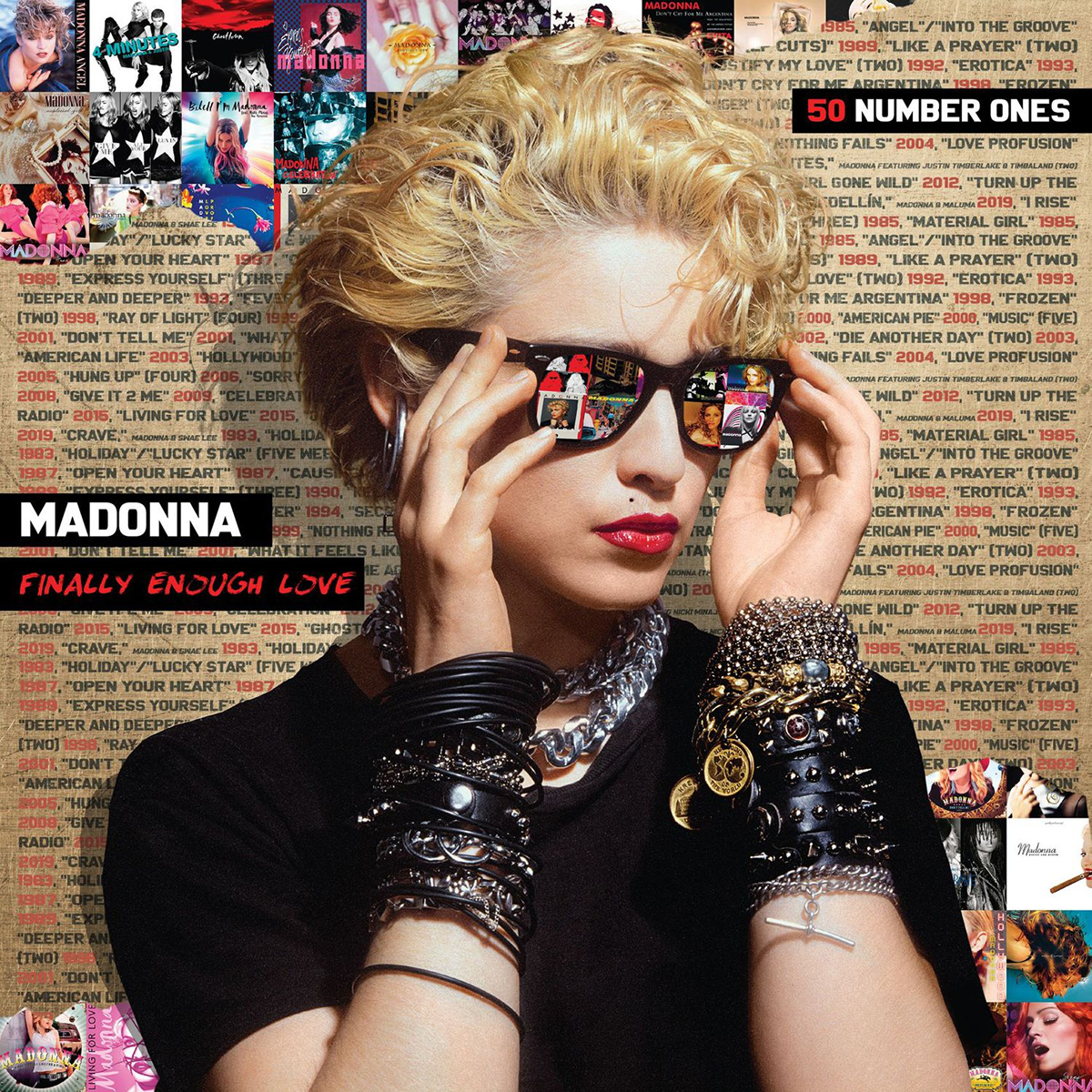
Music & Concerts
Berkshire Choral to commemorate Matthew Shepard’s life
Concert held at Washington National Cathedral
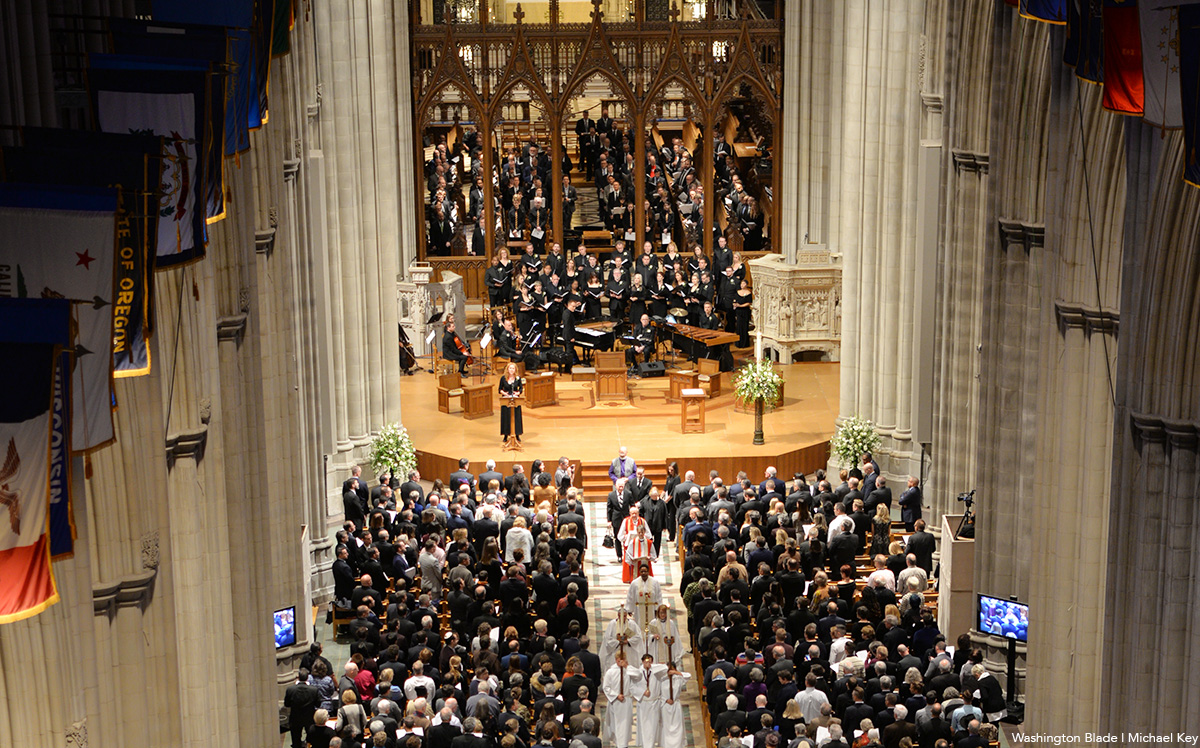
Berkshire Choral International will present a concert performance of composer Craig Hella Johnson’s fusion oratorio “Considering Matthew Shepard” on Friday, July 11, 2025 at 7:30 p.m. at the Washington National Cathedral.
The program will be guest conducted by Dr. Jeffrey Benson, a native of the DMV who currently serves as Director of Choral Activities at San José State University. The concert is a partial benefit for the Matthew Shepard Foundation. Notably, Matthew’s remains are interred at the National Cathedral and his parents, Dennis and Judy, will give opening remarks at the performance.
Tickets are $20 – $65, and 50% of ticket proceeds will be donated to the Matthew Shepard Foundation. Tickets are only available online at berkshirechoral.org.
Music & Concerts
Indigo Girls coming to Capital One Hall
Stars take center stage alongside Fairfax Symphony
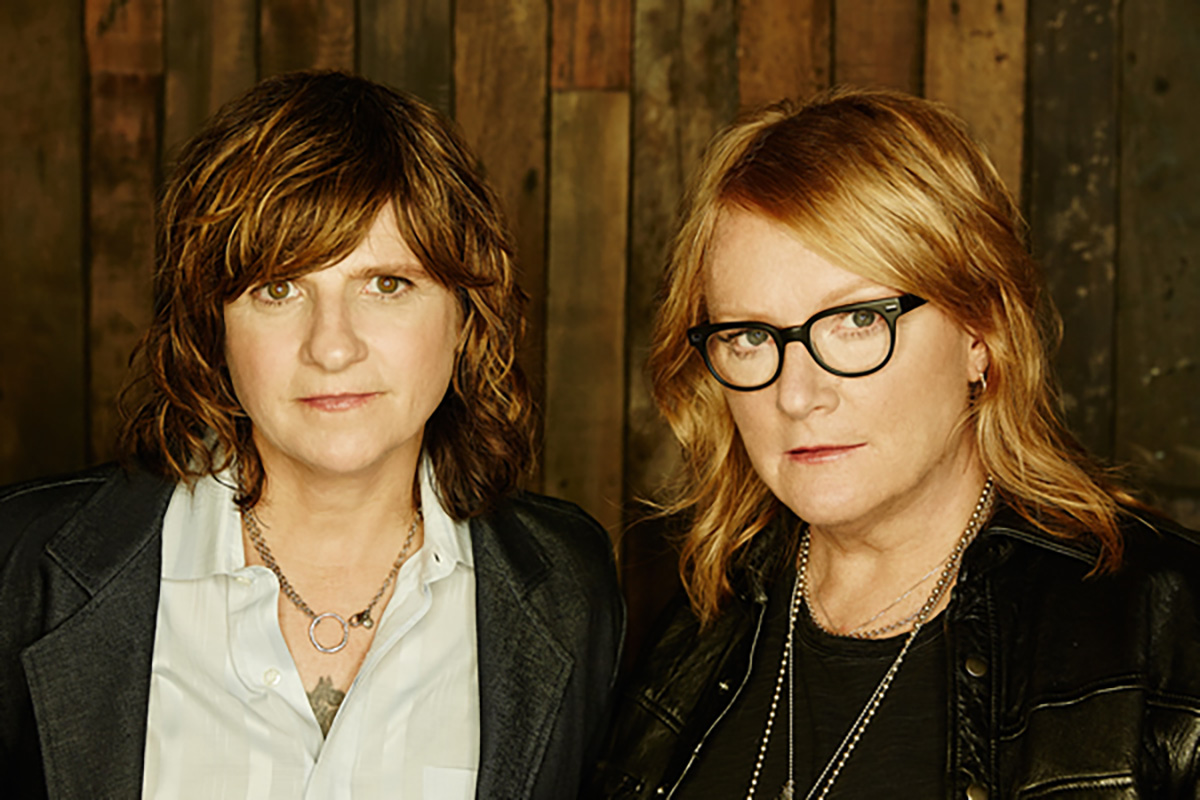
Capital One Center will host “The Indigo Girls with the Fairfax Symphony Orchestra” on Thursday, June 19 and Friday, June 20 at 8 p.m. at Capital One Hall.
The Grammy Award-winning folk and pop stars will take center stage alongside the Fairfax Symphony, conducted by Jason Seber. The concerts feature orchestrations of iconic hits such as “Power of Two,” “Get Out The Map,” “Least Complicated,” “Ghost,” “Kid Fears,” “Galileo,” “Closer to Fine,” and many more.
Tickets are available on Ticketmaster or in person at Capital One Hall the nights of the concerts.
Music & Concerts
Underdog glorious: a personal remembrance of Jill Sobule
Talented singer, songwriter died in house fire on May 1

I’ve always prided myself on being the kind of music consumer who purchased music on impulse. When I stumbled across “Things Here Are Different,” Jill Sobule’s 1990 MCA Records debut album on vinyl in a favorite Chicago record store, I bought it without knowing anything about her. This was at a time when we didn’t have our phones in our pockets to search for information about the artist on the internet. The LP stayed in my collection until, as vinyl was falling out of fashion, I replaced it with a CD a few years later.
Early in my career as an entertainment journalist, I received a promo copy of Jill’s eponymous 1995 Atlantic Records album. That year, Atlantic Records was one of the labels at the forefront of signing and heavily promoting queer artists, including Melissa Ferrick and Extra Fancy, and its roster included the self-titled album by Jill. It was a smart move, as the single “I Kissed A Girl” became a hit on radio and its accompanying video (featuring Fabio!) was in heavy rotation on MTV (when they still played videos).
Unfortunately for Jill, she was a victim of record label missteps. When 1997’s wonderful “Happy Town” failed to repeat the success, Atlantic dumped her. That was Atlantic’s loss, because her next album, the superb “Pink Pearl” contained “Heroes” and “Mexican Wrestler,” two of her most beloved songs. Sadly, Beyond Music, the label that released that album ceased to exist after just a few years. To her credit, the savvy Jill had also started independently releasing music (2004’s “The Folk Years”). That was a smart move because her next major-label release, the brilliant “Underdog Victorious” on Artemis Records, met a similar fate when that label folded.
With her 2009 album “California Years,” Jill launched her own indie label, Pinko Records, on which she would release two more outstanding full-length discs, 2014’s “Dottie’s Charms” (on which she collaborated with some of her favorite writers, including David Hadju, Rick Moody, Mary Jo Salter, and Jonathan Lethem), and 2018’s stunning “Nostalgia Kills.” Jill’s cover of the late Warren Zevon’s “Don’t Let Us Get Sick” on “Nostalgia Kills” was particularly poignant as she had toured with him as an opening act.
Jill was a road warrior, constantly on tour, and her live shows were something to behold. My first interview with Jill took place at the Double Door in Chicago in early August of 1995, when she was the opening act for legendary punk band X. She had thrown her back out the previous day and was diagnosed with a herniated disc. To be comfortable, she was lying down on a fabulous-‘50s sofa. “I feel like I’m at my shrink’s,” she said to me, “Do you want me to talk about my mother?”
That sense of humor, which permeated and enriched her music, was one of many reasons to love Jill. I was privileged to interview her for seven of her albums. Everything you would want to know about her was right there in her honest lyrics, in which she balanced her distinctive brand of humor with serious subject matter. Drawing on her life experiences in songs such as “Bitter,” “Underachiever,” “One of These Days,” “Freshman,” “Jetpack,” “Nothing To Prove,” “Forbidden Thoughts of Youth,” “Island of Lost Things,” “Where Do I Begin,” “Almost Great,” and “Big Shoes,” made her songs as personal as they were universal, elicited genuine affection and concern from her devoted fans.
While she was a consummate songwriter, Jill also felt equally comfortable covering songs made famous by others, including “Just A Little Lovin’” (on the 2000 Dusty Springfield tribute album “Forever Dusty”) and “Stoned Soul Picnic” (from the 1997 Laura Nyro tribute album “Time and Love”). Jill also didn’t shy away from political subject matter in her music with “Resistance Song,” “Soldiers of Christ,” “Attic,” “Heroes,” “Under the Disco Ball,” and the incredible “America Back” as prime examples.
Here’s something else worth mentioning about Jill. She was known for collaboration skills. As a songwriter, she maintained a multi-year creative partnership with Robin Eaton (“I Kissed A Girl” and many others), as well as Richard Barone, the gay frontman of the renowned band The Bongos. Jill’s history with Barone includes performing together at a queer Octoberfest event in Chicago in 1996. Writer and comedian Julie Sweeney, of “SNL” and “Work in Progress” fame was another Chicago collaborator with Sobule (Sweeney lives in a Chicago suburb), where they frequently performed their delightful “The Jill and Julia Show.” John Doe, of the aforementioned band X, also collaborated with Jill in the studio (“Tomorrow Is Breaking” from “Nostalgia Kills”), as well as in live performances.
On a very personal note, in 2019, when I was in the process of arranging a reading at the fabulous NYC gay bookstore Bureau of General Services – Queer Division, I reached out to Jill and asked her if she would like to be on the bill with me. We alternated performing; I would read a couple of poems, and Jill would sing a couple of songs. She even set one of my poems to music, on the spot.
Jill had an abundance of talent, and when she turned her attention to musical theater, it paid off in a big way. Her stage musical “F*ck 7th Grade,” a theatrical piece that seemed like the next logical step in her career, had its premiere at Pittsburgh’s City Theatre in the fall of 2020, during the height of the pandemic. The unique staging (an outdoor drive-in stage at which audience members watched from their cars) was truly inspired. “F*ck 7th Grade” went on to become a New York Times Critic’s pick, as well as earning a Drama Desk nomination.
In honor of the 30th anniversary of Jill’s eponymous 1995 album, reissue label Rhino Records is re-releasing it on red vinyl. Jill and I had been emailing each other to arrange a time for an interview. We even had a date on the books for the third week of May.
When she died in a house fire in Minnesota on May 1 at age 66, Jill received mentions on network and cable news shows. She was showered with attention from major news outlets, including obits in the New York Times and Rolling Stone (but not Pitchfork, who couldn’t be bothered to review her music when she was alive). Is it wrong to think that if she’d gotten this much attention when she was alive she could have been as big as Taylor Swift? I don’t think so.
-

 U.S. Supreme Court4 days ago
U.S. Supreme Court4 days agoSupreme Court upholds ACA rule that makes PrEP, other preventative care free
-

 U.S. Supreme Court4 days ago
U.S. Supreme Court4 days agoSupreme Court rules parents must have option to opt children out of LGBTQ-specific lessons
-

 National5 days ago
National5 days agoEvan Wolfson on the 10-year legacy of marriage equality
-

 Congress5 days ago
Congress5 days agoSenate parliamentarian orders removal of gender-affirming care ban from GOP reconciliation bill



